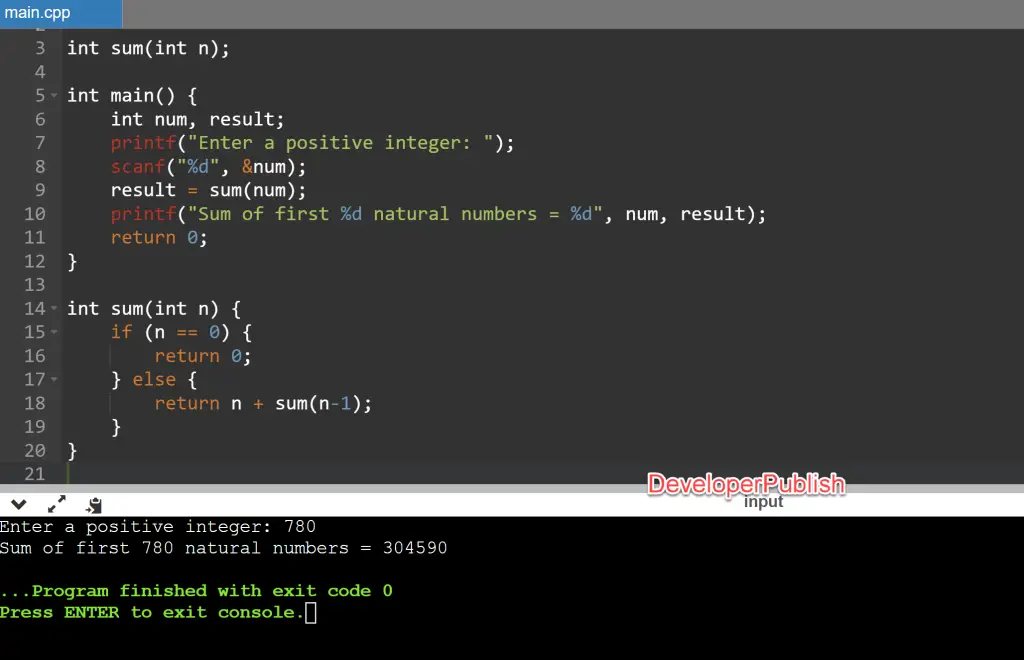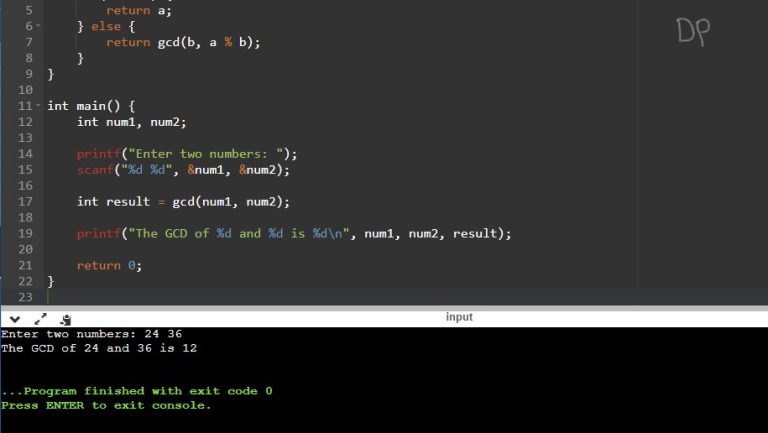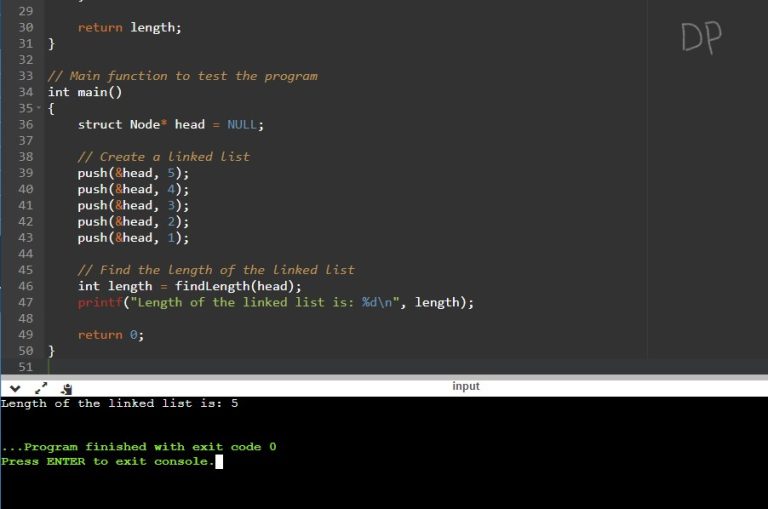This program calculates the sum of the first n natural numbers using recursion in the C programming language.
Problem Statement
Given a positive integer n, write a C program to calculate the sum of the first n natural numbers using recursion.
Solution
To solve this problem, we will write a function called sum() that takes an integer argument n and recursively calculates the sum of the first n natural numbers. Here’s the code:
#include <stdio.h>
int sum(int n);
int main() {
int num, result;
printf("Enter a positive integer: ");
scanf("%d", &num);
result = sum(num);
printf("Sum of first %d natural numbers = %d", num, result);
return 0;
}
int sum(int n) {
if (n == 0) {
return 0;
} else {
return n + sum(n-1);
}
}
Output

Let’s go through the code step-by-step:
- We include the standard input/output header file
stdio.h. - We declare a function called
sum()that takes an integer argumentnand returns an integer value. This function will be used to recursively calculate the sum of the firstnnatural numbers. - In the
main()function, we declare two integer variablesnumandresult. We prompt the user to enter a positive integer using theprintf()andscanf()functions. We then call thesum()function with the inputnumas an argument and store the result in theresultvariable. - Finally, we use the
printf()function to display the result to the user. - The
sum()function is defined below themain()function. It takes a single integer argumentn, which is the number of natural numbers to be summed up. - If the input
nis 0, the function returns 0 (the base case). - Otherwise, the function returns the sum of
nand the result of callingsum(n-1)(the recursive case). This recursive call reduces the value ofnby 1 each time until the base case is reached. - This process continues until
nis reduced to 0.
Explanation
The sum() function is the core of the program. It calculates the sum of the first n natural numbers by using recursion. Recursion is a programming technique where a function calls itself to solve a smaller version of the same problem. The sum() function follows this technique to calculate the sum of the first n natural numbers.
The function sum() has two cases: the base case and the recursive case. The base case is where the function terminates and returns a value. In this case, if the input n is 0, the function returns 0. The recursive case is where the function calls itself to solve a smaller version of the same problem. In this case, if the input n is greater than 0, the function returns the sum of n and the result of calling sum(n-1).
When the sum() function is called with an input value of n, it calculates the sum of the first n natural numbers by recursively calling itself with a smaller value of n. This process continues until the base case is reached (i.e., n becomes 0). At that point, the function starts returning values to its previous calls. The values
returned by the function are added up until the original call to sum() is reached, which returns the final sum of the first n natural numbers.
In the main() function, we prompt the user to enter a positive integer num. We then call the sum() function with the input num as an argument and store the result in the result variable. Finally, we use the printf() function to display the result to the user.
Conclusion
In this program, we used recursion to calculate the sum of the first n natural numbers in the C programming language. Recursion is a powerful technique that can be used to solve a wide variety of problems. The key to writing a good recursive function is to identify the base case and the recursive case. The base case is the case where the function terminates and returns a value. The recursive case is the case where the function calls itself to solve a smaller version of the same problem. By combining these two cases, we can write powerful and elegant recursive functions that solve complex problems with ease.



